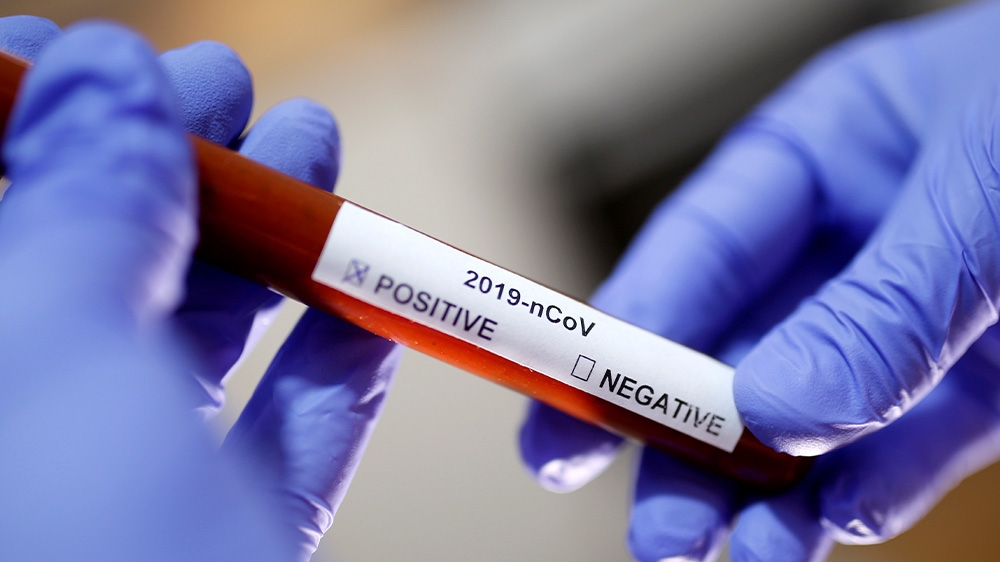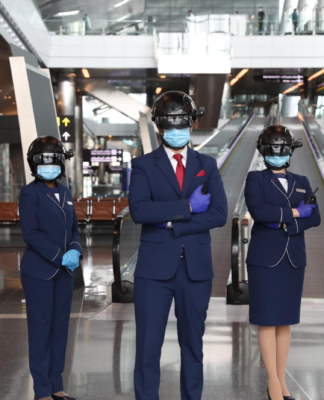/ 45

Dr. Stephen Parodi mentioned the South Bay hospital in an interview about how Kaiser is preparing for an influx of patients.
Roughly half of all patients at the 242-bed San Jose Kaiser hospital have tested positive for COVID-19 or are suspected of being infected with the novel coronavirus.
So says Kaiser Permanente Executive Vice President Dr. Stephen Parodi, an infectious disease expert who dropped the bombshell in a recent interview with Journal of the American Medical Association (JAMA) Editor-in-Chef Howard Bauchner.
“Our San Jose facility in California actually has almost half of the hospital filled either with COVID-confirmed or persons under investigation,” Parodi told Bauchner while discussing the hospital chain’s surge plans. “So we’ve literally had to revamp the hospital to make sure that we’ve got enough capacity from a personnel standpoint. Because to provide the care to these patients requires resource-intensive personnel.”
Parodi, who leads Kaiser’s national pandemic response effort, told the publication that the South Bay facility’s intensive care unit maxed out with just COVID-19 patients, forcing the hospital to set up another area to care for regular ICU wards.
Santa Clara County has one of the highest concentrations of coronavirus infections in California, with the confirmed case tally reaching 459 and the death toll going up to 17, according to public health authorities. Of those who tested positive, 137 remain hospitalized. But a lack of available tests keeps the official count deceptively low.
County Executive Jeff Smith said earlier this week that it’s safe to say that at least 10,000 of the nearly 2 million people who live in his jurisdiction have already come down with the highly contagious respiratory disease. Deputy City Manager Kip Harkness on Tuesday said the number could be up to 19,000—and counting.
Parodi told the medical journal reporter that doctors are seeing more than just elderly patients sickened by the pulmonary disease. Many young COVID-19 patients are unable to breathe on their own, requiring doctors to place them on mechanical ventilators that push air into their inflamed lungs.
“I think the jury’s still out about who is actually going to end up being the cohort that ends up in the hospitals,” the Kaiser exec said. “We have people that are as young as in their 30s and 40s who have clinically deteriorated and required mechanical ventilation.”
Once a coronavirus patient ends up in the ICU, Parodi said they typically require about two weeks of mechanical ventilation.
“So this is a long-term proposition,” he said, “in terms of vent days, ICU days and personnel days. And I am concerned about planning for having enough ventilators—I’m talking about all across the country—to be able to have this level of response.”
Parodi said it’s wise to prepare for an abrupt influx in patients needing intensive care. The San Jose hospital, by way of example, went from none to 10 in the span of a week. At this pace, doctors face the prospect of running out of ventilators and having to decide who gets one and who doesn’t, he went on to say.
The looming surge comes as hospitals throughout the nation grapple with a widespread lack of testing and personal protective gear such as N95 face masks, a snug cover that filters out all but 5 percent of airborne particles. Hospital administrators canceled all elective surgeries this month to save as much protective gear as possible in addition to rationing them and buying up stockpiles from local hardware stores.
Karl Sonkin, Kaiser’s South Bay spokesman, responded to a request for comment with a prepared statement from Senior Vice President and Area Manager Irene Chavez. She said that while the hospital won’t disclose the daily number of COVID-19-sickened patients, the current number is lower now than when Parodi was interviewed.
“Given that it is located in a COVID-19 hotspot, and that we count so many South Bay residents as our members, it should not be surprising that we would care for a significant number of our patients in our San Jose hospital,” she went on to write. “We are grateful to our physicians, nurses, and staff for the excellent care they are providing to all our patients, including those with COVID-19.”
This article has been updated with a statement from Kaiser






























